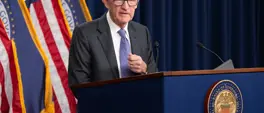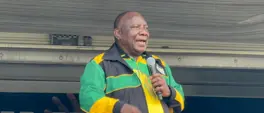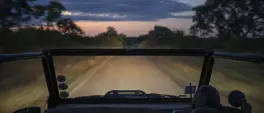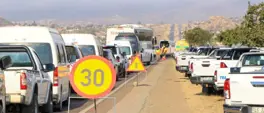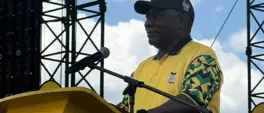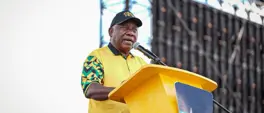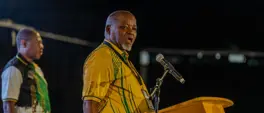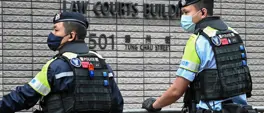'Deadly blockade' leaves Gaza aid work on verge of collapse
AFP
2 May 2025 | 17:37Israel strictly controls all inflows of international aid vital for the 2.4 million Palestinians in the Gaza Strip.
GENEVA - Humanitarians on Friday described horrific scenes of starving, bloodied children and fights over water in Gaza, two months into Israel's full blockade on aid, with dire warnings that aid operations are on the brink of total collapse.
The Norwegian Refugee Council's humanitarian access manager in Gaza, Gavin Kelleher, said "thousands of people will die" if nothing is done, as other aid agencies called for urgent international action.
"The humanitarian response in Gaza is on the verge of total collapse," the International Committee of the Red Cross warned.
"Without immediate action, Gaza will descend further into chaos that humanitarian efforts will not be able to mitigate."
Israel strictly controls all inflows of international aid vital for the 2.4 million Palestinians in the Gaza Strip.
It halted aid deliveries to Gaza on 2 March, days before the collapse of a ceasefire that had significantly reduced hostilities after 15 months of war.
Since the start of the blockade, the United Nations has repeatedly warned of the humanitarian catastrophe on the ground, with famine again looming.
The UN's World Food Programme (WFP) said last week that it had sent out its "last remaining food stocks" to kitchens, and the 25 bakeries it supports in Gaza have closed due to a lack of flour and fuel.
'DEADLY' BLOCKADE
"Food stocks have now mainly run out," Olga Cherevko, a spokeswoman for the UN humanitarian agency OCHA, told reporters in Geneva Friday via video link from Gaza City.
"Community kitchens have begun to shut down (and) more people are going hungry," she said, pointing to reports of children and other very vulnerable people who have died from malnutrition and ... from the lack of food".
"The blockade is deadly."
Water access was also "becoming impossible", Cherevko warned. "There's a water truck that has just arrived, and people are killing each other over water," she said, describing a scene below her window.
One friend described that the situation had deteriorated so much that there was no water to save "people burning ... because of the explosions" while hospitals were running out of blood, even as mass casualties arrived.
"Gaza lies in ruins, Rubble fills the streets... Many nights, blood-curdling screams of the injured pierce the skies following the deafening sound of another explosion," she added.
The NRC's Kelleher meanwhile described an increase in "needs-based looting across Gaza" and condemned what he said was a "manufactured breakdown of civil order".
"Israel is not only preventing food from entering Gaza but it has also engineered a situation in which Palestinians cannot grow their own food, they cannot fish for their own food and they continue to attack or deny access to the little left food stocks in Gaza," he added.
'ABOMINATION'
Humanitarians also decried the mass displacement, with nearly the entire Gaza population being forced to shift multiple times before the brief ceasefire.
Since the resumption of hostilities, Cherevko said more than 420,000 people have been forced to flee again, many "with only the clothes on their backs" and were shot at as they tried to reach overcrowded shelters.
Pascal Hundt, the ICRC's deputy head of operations, said civilians were facing "an overwhelming daily struggle to survive" the hostilities, as well as repeated displacement and lack of humanitarian aid.
The World Health Organization's emergencies director Mike Ryan called the situation an "abomination".
"We are breaking the bodies and the minds of the children of Gaza. We are starving the children of Gaza," he told reporters on Thursday.
Cherevko slammed decision-makers who "have watched in silence the endless scenes of bloodied children, of severed limbs, of grieving parents move swiftly across their screens, month after month after month".
"How much more blood must be spilled before enough become enough?"

